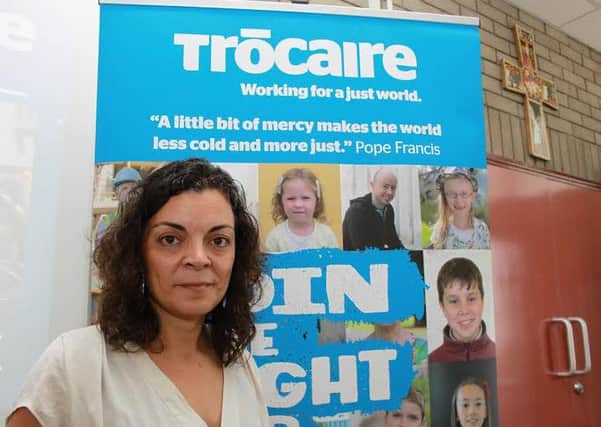Derry reaches out to Guatemala


Speaking during the Feile at the Cultúrlann Uí Chanáin, Ms. Blanco said that what the women went through was “some of the most degrading abuse imaginable.”
The crimes addressed during the trial occurred between 1982 and 1983, one of the most violent and repressive periods of Guatemala’s internal armed conflict. The 36 year conflict saw 200,000 people killed or ‘disappeared’ and one million people having to flee their homes. A recent ‘Truth Commission’ in the country found that 97% of the killings were carried out by government forces.
Advertisement
Hide AdAdvertisement
Hide AdMs. Blanco said: “In early 1982, the husbands of all fifteen women at the centre of this case were in the process of obtaining legal title over their lands. They were identified by local authorities and land owners and branded ‘agitators’. When the military soon came looking for them they were accused of aiding the guerrilla forces. Their wives were beaten and raped and the men were beaten and taken away to military bases for interrogation. The women never saw their husbands alive again; seven were murdered and eight more remain disappeared.”
“The fifteen women were forcibly removed from their communities and brought to the Sepur Zarco army barracks where they were told that as widows they now ‘belonged to the soldiers’.
“The women were ordered to cook and clean for the 400 or so soldiers that were housed at the barracks. They were raped by multiple soldiers on a daily basis. Over six years they were forced to cook for the soldiers and wash their clothes.
“In the 30 years since these crimes were committed the women have had to bear their suffering in a profound silence, unable to share what they had lived through even with their closest friends or families. They have suffered years of physical and mental ill-health including chronic pain, gynaecological problems, anxiety and depression.
Advertisement
Hide AdAdvertisement
Hide Ad“They have lived in extreme poverty and deprivation and for many years were unable to access the necessary health care and emotional and psychological support they needed. The hardest part, they told the court, was living with the shame and fear.”
“Trócaire and its partner organisations have been working with the women for many years to help them achieve justice and give them the psychological and other support they needed. In 2010 the women decided to break their silence and initiate legal proceedings against the two military officials who were in command of the military base of Sepur Zarco when the crimes occurred.
“In March this year history was made in Guatemala as former Lieutenant Esteelmer Reyes Girón and military commissioner Heriberto Valdez Asij, were found guilty of crimes against humanity committed during the conflict.”
They were sentenced to 120 and 240 years in prison respectively. “The women who gave testimony at the trial waved their hands in the air in jubilation and gratitude to the court and the hundreds of people gathered in solidarity.”
Advertisement
Hide AdAdvertisement
Hide AdMs. Blanco concluded: “The verdict in this case sets a strong precedent for the other 1500 Guatemalan women who are survivors of sexual violence committed during the armed conflict that they too might see justice done. Trócaire staff accompanied the fifteen women throughout the three weeks of the trial and will continue to support them over the next months and years to ensure that the sentence is carried out and that they receive their due reparations. We could not carry out this important work without the support of people in Derry and across the island of Ireland and for that support I thank you.”
To find out more about Trócaire’s work visit www.trocaire.org